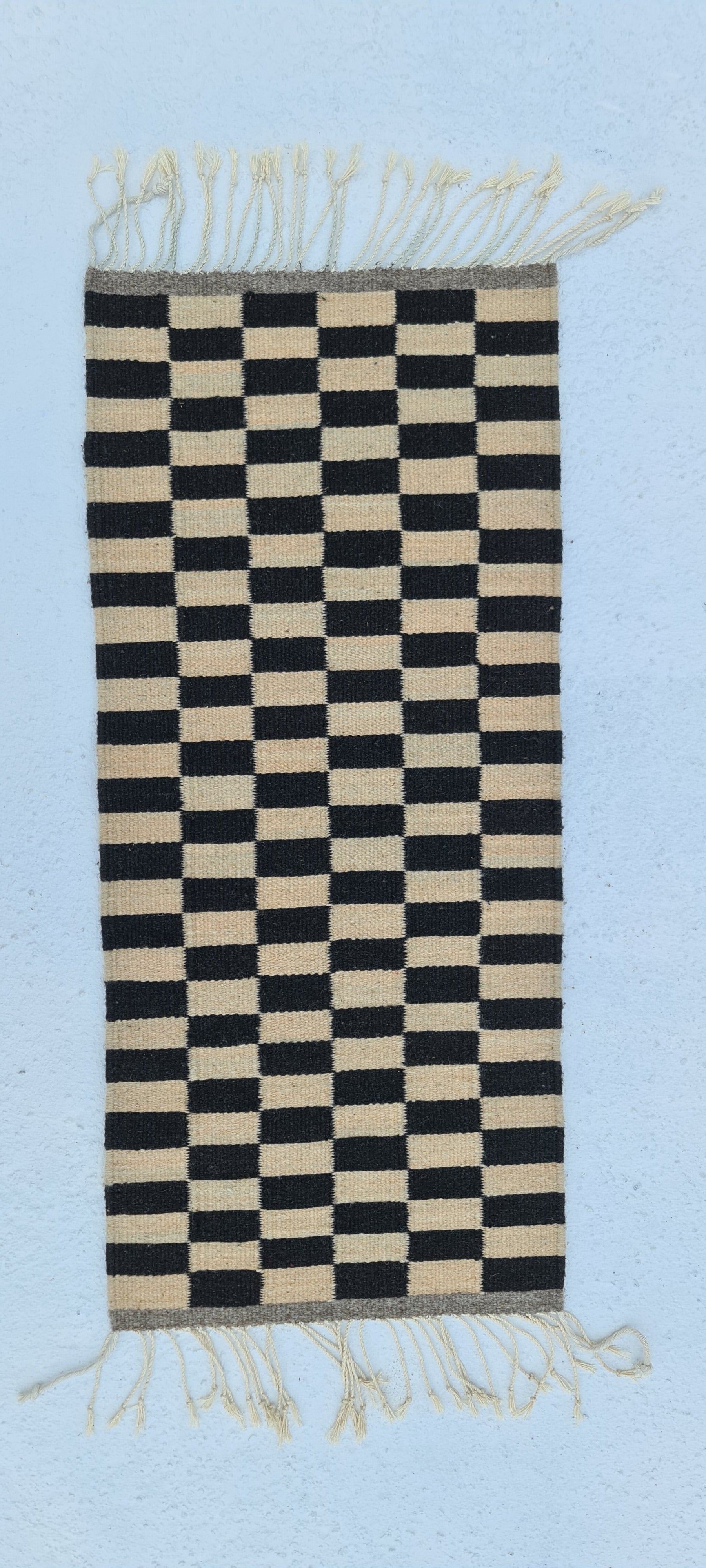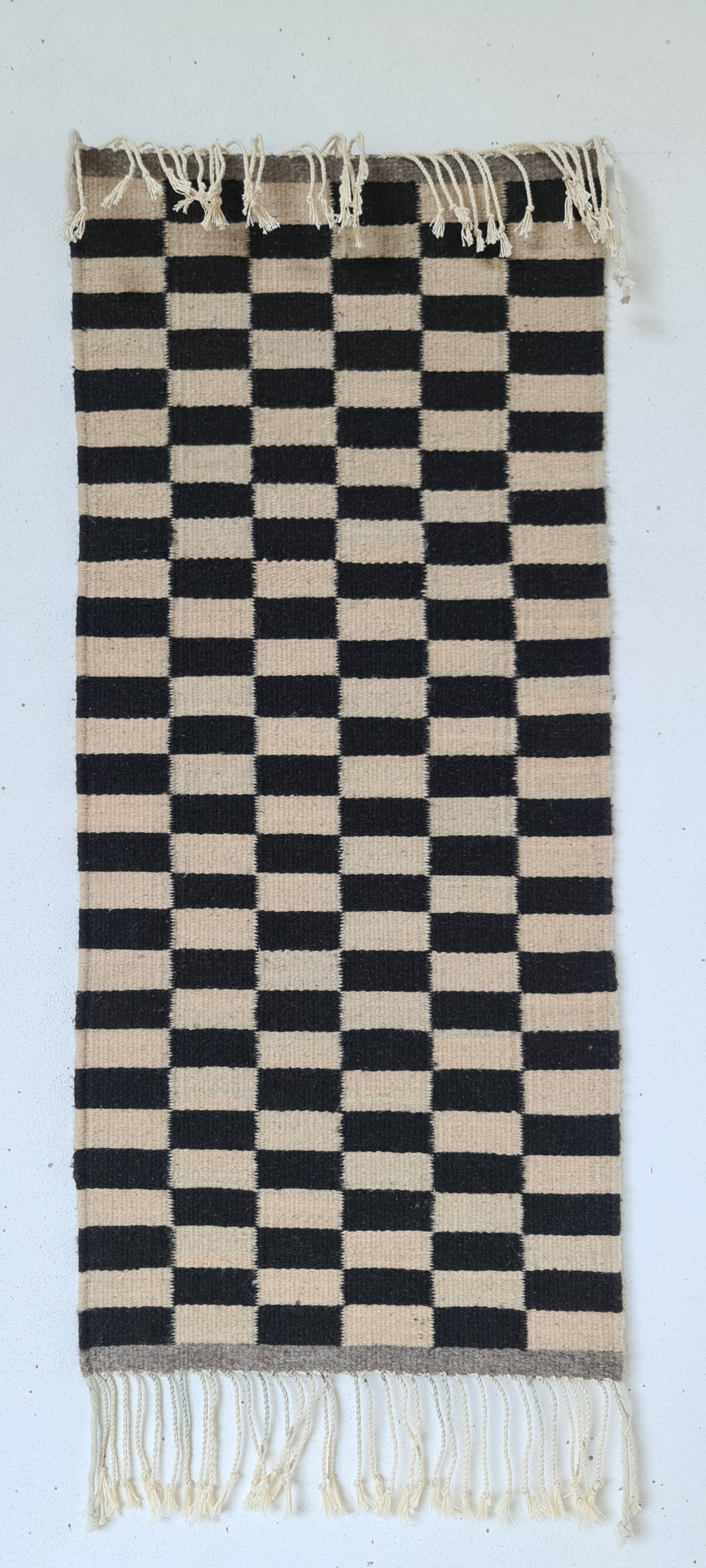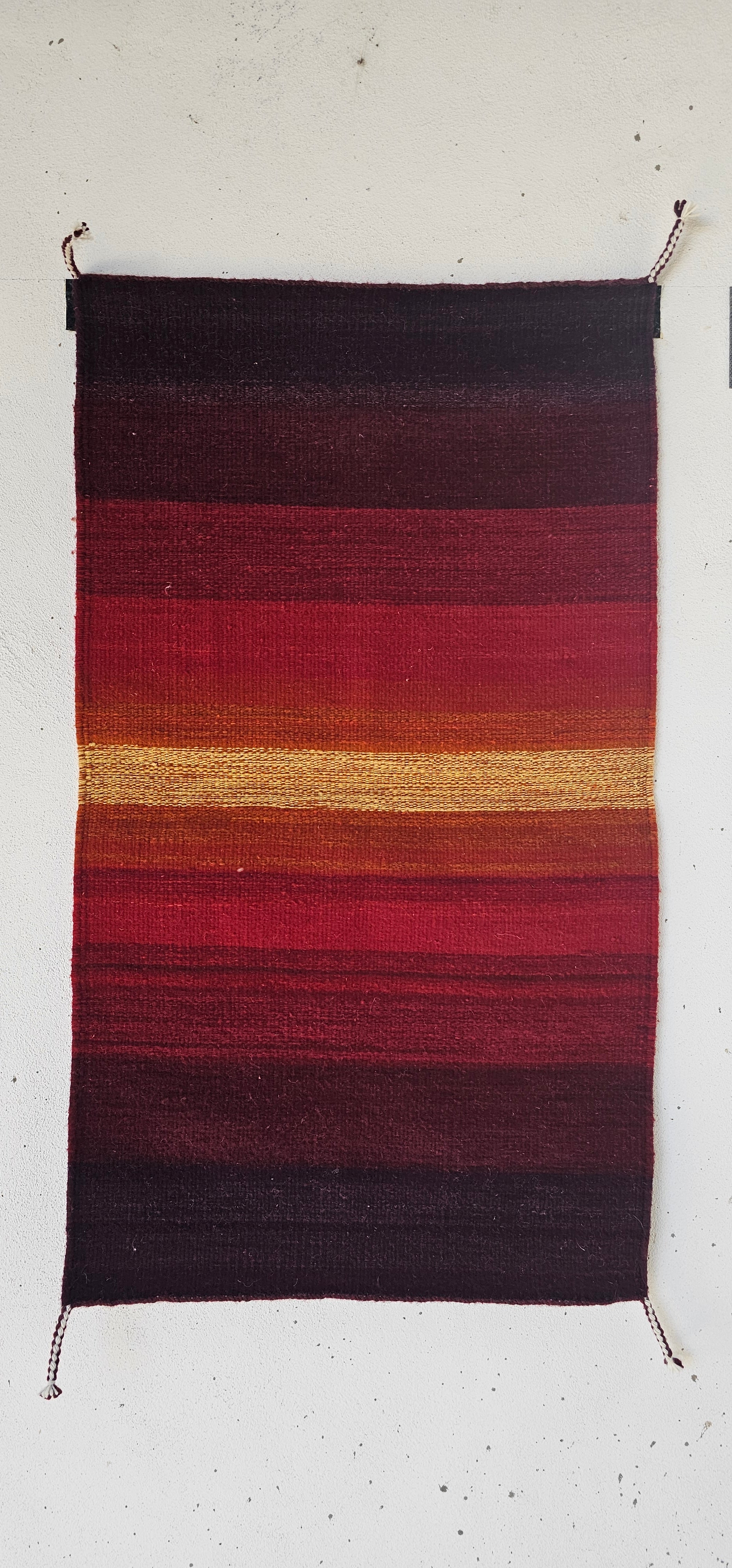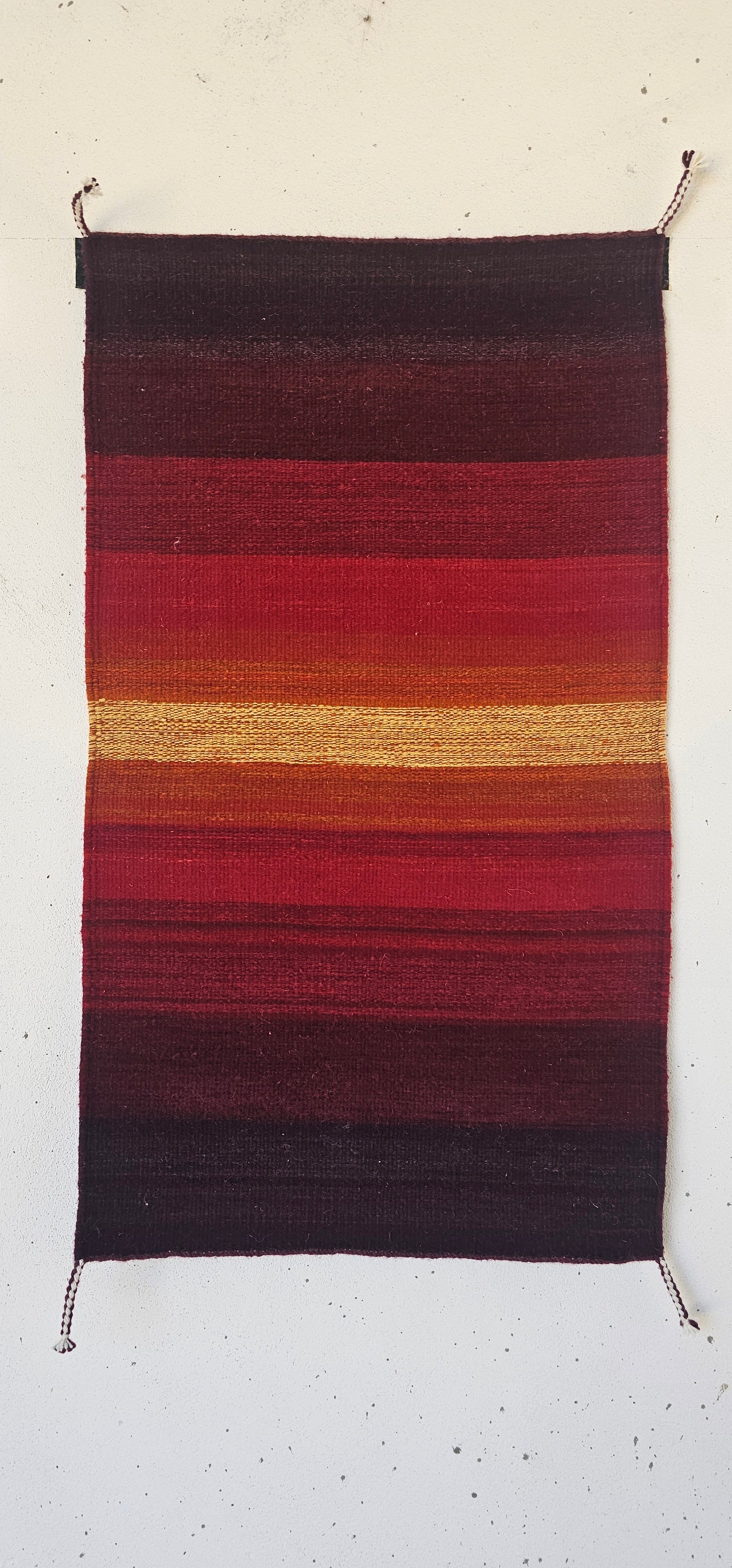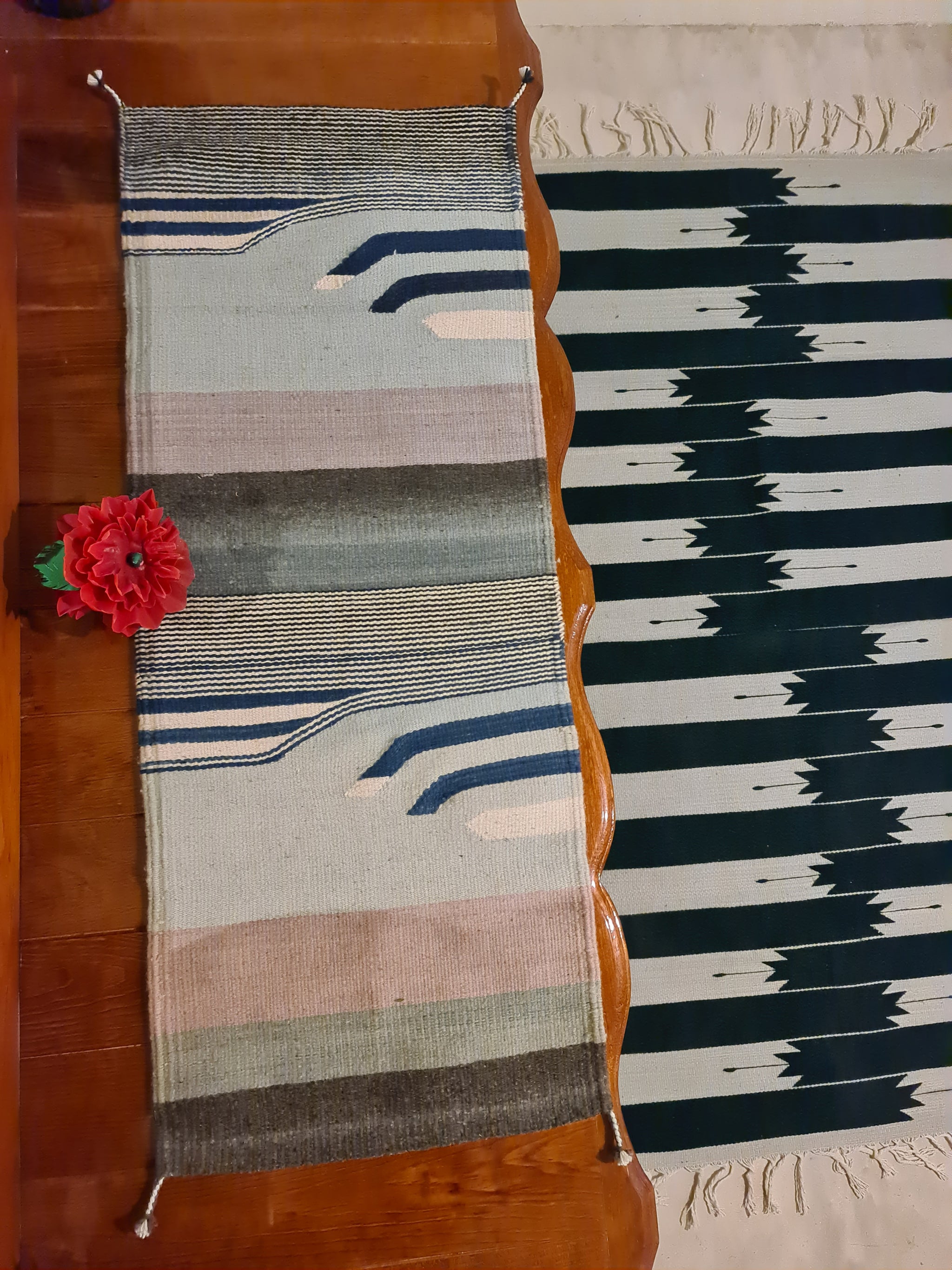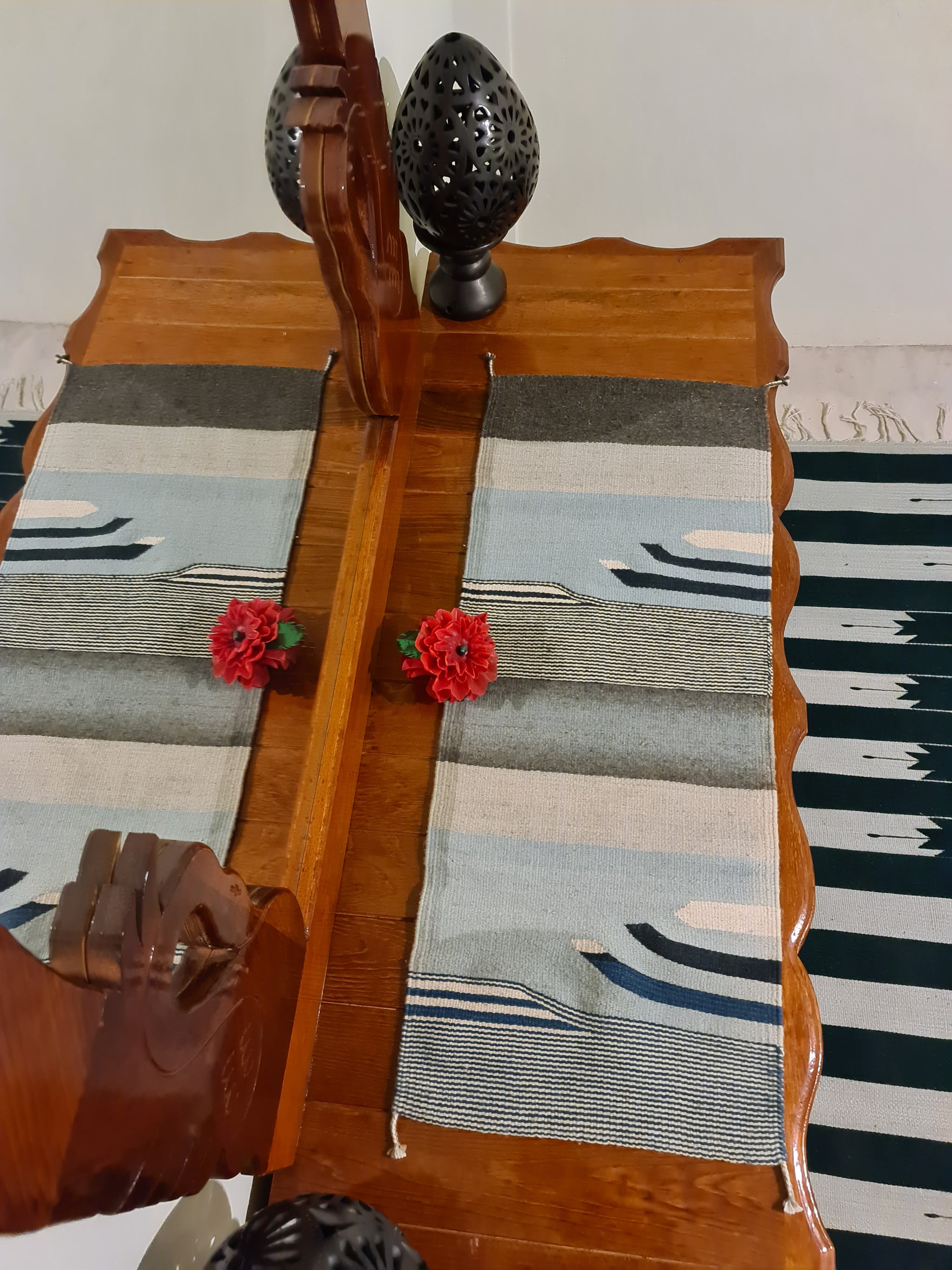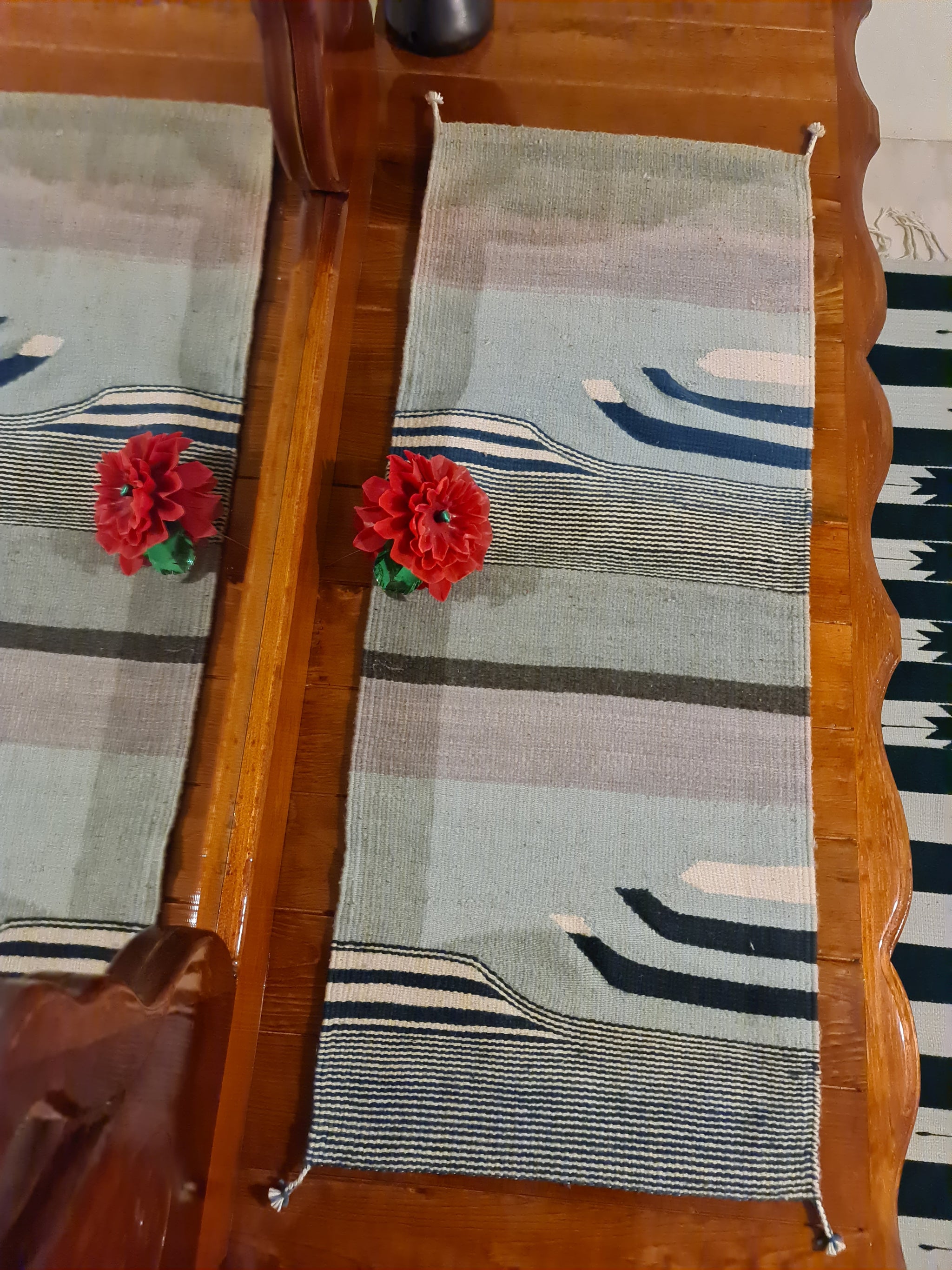Gambito Atahualpa
$ 3,000.00
Size: 40x100cm; 16in by 3ft
Weaver: Belen Bautista
The two Spanish captains even taught the Inca emperor how to play chess and spent hours with him enjoying a game originally invented in India. Atahualpa soon became proficient and gave chess the name of taptana, or ‘surprise attack,’ thoroughly enjoying the game’s obvious parallels with military strategy.
...One afternoon, in the final moves of a match between Soto and Riquelme, Hernando made a move toward putting the knight into play, and the Inca, touching him lightly on the arm, said to him in a low voice:
No, captain, no… the rook!
Everyone was surprised. After a few brief seconds of reflection, Hernando played the castle, as Atahualpa had advised him, and a few moves later, Riquelme experienced the inevitable checkmate.
After that afternoon, and always giving him the white pieces to play as a sign of respect and courtesy, Captain Hernando de Soto invited the Inca to play just one match with him, and after a couple of months the disciple was already a credit to his teacher, playing as his equal."
Popular tradition assures us that the Inca would not have been condemned to death had he remained untutored in chess. The people say that Atahualpa paid with his life for the checkmate that Riquelme suffered because of his advice on that memorable afternoon. In the famous council of 24 judges called together by Pizarro, Atahualpa was sentenced to the death penalty by 13 votes for and 11 against. Riquelme was one of the 13 who signed the death sentence (Rick Vecchio 2016).
Share:
Related Items
Punta Cometa: fire tending
$ 4,600.00
60x100cm; 2x3ft Materials ans methods: criollo sheep wool hand dyed with colorfast aniline dyes using an exhaustive method. Handwoven on a Zapotec style loom of the 16th century adapted from European...
River Spirit
$ 3,110.00
Size: 40x100cm; 16in x 3.2ft Weaver: Zenaida Lopez from San Miguel del Valle Materials and Methods: Criollo sheep wool hand dyed by Leonor Lazo and Samuel Bautista using xiuhquilitl (indigo)...
Yaag Chei: tree of life
$ 5,500.00
Size: 60x100cm; 2x3ft Master Weaver: Samuel Bautista Lazo Materials and methods: criollo sheep wool spun in the mills of the Batalla family in Tianguistengo. Hand dyed yarns by Leonor Lazo using...
